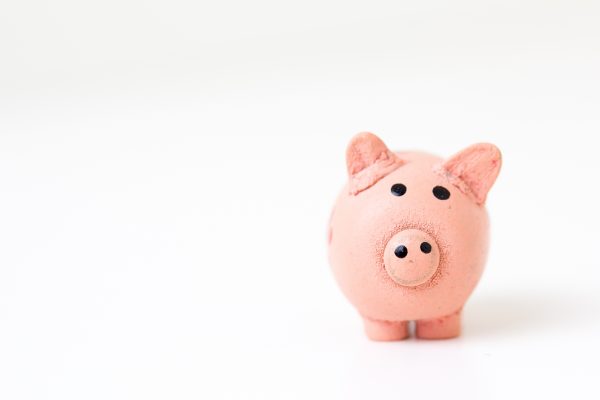Ask Nicole: Should I Pay Off Debt Before Building My Emergency Fund?

A few years ago, I had a mountain of credit card debt to pay off (nearly $20K), and thanks to lots of overtime as a contractor, I was able to pay that debt off. It was all-consuming, so once I finally tackled it, it was the most major relief.
Now, I want to pay off my remaining student loan, which is about $12K, with interest rates around 5–6 percent. I also want to aggressively save an emergency fund of about $10K now that I’m free of credit card debt, but I’m unsure how to juggle the two. The student loan interest rate is nothing compared to credit card APRs close to 20 percent, but it’s still a debt.
Do I aggressively pay off the student loan first, before worrying about my emergency fund? Is there a good way to balance the two goals?
Debt vs. Fund
Dear DVF,
Since most advice columnists tend to focus on how they’d do things, I’ll go ahead and tell you that when I was in a similar situation, I put money towards my debt and my emergency fund simultaneously.
I did prioritize my debt repayment over my emergency fund, though — I put 20 percent of every paycheck towards debt and 10 percent towards savings.
You didn’t mention how much you earned, nor how much of your paycheck was available to put towards debt or savings. If you earn $2K a month after taxes but rent is $1K, for example, you might not be able to put $400 towards debt and $200 towards savings. You’ll have to figure out the percentages that work for you.
If you want to get really mathy about it, you could figure out how much you needed to put towards your debt and how much you needed to put towards savings to progress towards both goals at the exact same pace. It’s not as simple as saying “Every month, I’ll put $500 towards my $12K student loan debt and $417 towards my $10K savings goal and achieve both goals in two years,” because you’ll also have to pay off the interest you earn on your debt (and subtract the interest you earn on your savings).
Still, math is fun, if you want to go that route.
I will note that not all personal-finance types would agree with my advice to tackle both goals simultaneously. Dave Ramsey recommends saving up a “starter emergency fund” that’ll get you through a small emergency, then tackling your debt, then going back and beefing up your emergency fund.
This is the same advice that Lillian Karabaic gave on a recent Oh My Dollar! podcast episode:
To quote Lillian Karabaic:
The reason I have [debt repayment] as a step before I have any of these other — you know, increasing income or saving three-to-eight months of expenses in an emergency fund, is because paying off debt gives you so much flexibility in approaching other financial goals. So if you’ve got those student loans hanging over your head […] it makes it a lot harder to prioritize those other financial goals because it’s taking your income away every month.
She does recommend saving at least one month’s worth of expenses first, to keep you from living paycheck-to-paycheck and give you a small buffer in case of emergency.
I tend to come down on the side of saving towards both goals simultaneously, in part because debt repayment can take years. (Ask me how I know.) Do you really want to have only $1,000 in savings two years from now? Three? Or is it okay to put a little less towards your debt so you can have more in savings? After all, you’re probably going to need those savings in the next few years, whether you’re paying medical bills, moving, planning a wedding, dealing with unemployment — and the last thing you want is to go back into debt because you haven’t saved for those expenses.
It really depends on how much discretionary income you have, how much interest your debt earns, and how long you think it’ll take you to pay off your debt in full. If you can knock that debt out in six months and then pour all that money into savings, go for it! If you’re playing the long game, consider putting a little towards debt and a little towards savings.
That’s my advice — and now I’ll turn it over to the rest of The Billfold so they can offer theirs.
Why Not Both gif,
Nicole
P.S. CONGRATULATIONS ON PAYING OFF YOUR CREDIT CARD DEBT!!!! THAT IS AMAZING. I’M SURE YOU’LL BE GREAT AT WHICHEVER WAY YOU CHOOSE TO TACKLE THIS NEXT FINANCIAL MOUNTAIN.
Want to submit a question for this still-kinda-new advice column? Email nicole@thebillfold.com.
Photo by Fabian Blank on Unsplash.
Support The Billfold
The Billfold continues to exist thanks to support from our readers. Help us continue to do our work by making a monthly pledge on Patreon or a one-time-only contribution through PayPal.
Comments